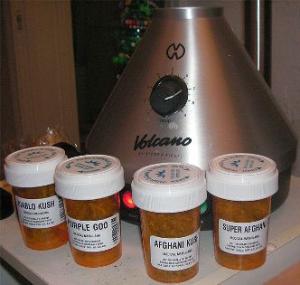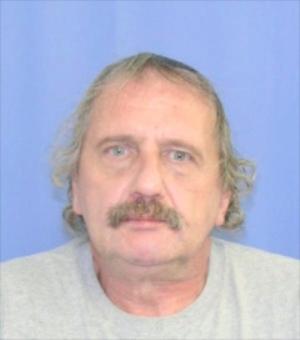With a draconian medical marijuana "reform" bill set to become law in a matter of weeks, the Montana medical marijuana industry is fighting back with lawsuits and an initiative campaign.
Saturday, it was Global Marijuana March day. Sunday saw marches, too, but much more somber.
Vermont is set to become the next medical marijuana dispensary state after the legislature gave final approval to a bill that would do just that.
Medical marijuana has all but passed the Delaware legislature. Only one Senate concurrence vote remains, and that does not look like it will be a problem.
An Illinois medical marijuana bill has again fallen short in the House, even after it was watered-down and tightened-up.
A welfare drug testing bill has passed out of the Missouri legislature and is headed for the governor's desk. This one requires "reasonable suspicion."
Florida is about to become the first state to impose suspicionless drug testing on welfare recipients. And then it will likely spend a lot of taxpayer money on a probably futile attempt to defend its constitutionality.
Language that would have created a per se drugged driving law in Colorado was briefly reinserted in a bill Friday, but then the bill was killed Monday.
Mexicans marched against drug war mayhem by the tens of thousands over the weekend, but the hit men didn't even break stride.
A Texas DA is on the wrong side of the bars, and so is a Kentucky jail guard. Meanwhile, crooked cops in Philly and California's East Bay have their own problems.
LAPD narcs encountered a homeless guy cutting drugs on the street, then shot and killed him when he turned toward them still holding the knife. That's drug war killing #25 for the year.
A dawn drug raid in Pennsylvania ended with police shooting and killing a meth cook in his bedroom after they said he pulled a shotgun on them.
Events and quotes of note from this week's drug policy events of years past.
In the wake of the passage of a medical marijuana "reform" bill that would criminalize dispensaries and large, multi-patient grows, some dispensary operators and growers are already closing up shop. But others are organizing to undo the legislature's attempt to destroy the industry.

The battle over medical marijuana is far from over in Montana (Image via Wikimedia.org)
The newly formed
Montana Cannabis Industry Association (MCIA) has announced that it is moving forward on two fronts: It has hired an attorney to seek a temporary injunction blocking the law from going into effect and it has begun a signature-gathering campaign to put the issue directly to the voters on the November 2012 ballot.
"We are moving forward on the injunction and the referendum," MCIA board member Kate Cholewa told the Chronicle. "The injunction challenges the law. That's one prong. The other prong is the signature-gathering campaign. If we are successful in gathering those signatures, that would keep the law from going into effect and we would be on the ballot in 2012."
Gov. Brian Schweitzer (D) vetoed an outright repeal bill passed by the Republican legislature, but he has said that while he finds the second bill unpalatable, he will allow it to become law without his signature. Activists hold little hope that Schweitzer can be persuaded to change his mind before his 10-day period to act ends on Friday.
"That is not something we expect to happen," said Cholewa. "You can't say the door is closed until Friday, but the political environment around here is such that it's unlikely."
Montana voters approved medical marijuana in a 2004 referendum, and the issue was relatively non-controversial until the Obama Justice Department released its October 2009 memo saying that going after people in compliance with state law in states where it is legal was not a high priority. After that, the Montana medical marijuana scene exploded, with the number of patients shooting from 2,000 to 30,000 and the now familiar medical marijuana landscape of dispensaries, grow ups, and supply shops expanding rapidly.
Excesses by some operators in the post-memo period led to a virulent backlash, which was reflected in the legislative session this year. A bill to reasonably regulate medical marijuana that had been crafted over a period of months was amended beyond recognition by foes, who instead then passed the repeal bill. When Schweitzer vetoed that, the Republican leadership responded with the current bill, which also bans any medical marijuana sales, makes it more difficult for people claiming chronic pain to get a recommendation, and mandates investigations -- at their own expense! -- of any doctors who recommend it to more than 25 patients in a year.
This year's legislative session revealed a medical marijuana community that was divided and disorganized. The MCIA is an effort to get growers, dispensary operators, and advocates on the same page for the coming battle.
"The day after the session ended, we all got together in a meeting the next day to figure out what we could do," said Cholewa. "We talked about injunctions and referenda and interview lawyers. We raised $20,000 or $30,000 in 48 hours."
The number has since jumped to more than $50,000, and the MCIA has hired prominent Bozeman attorney James Goetz to challenge the law in court.
"The reality is that this group of legislators came in and instead of regulating the industry, they decided to destroy it with this de facto repeal, said Cholewa. "They were saying that medical marijuana in Montana was a mess, but they've created a mess of a whole different order. It’s about more than marijuana now," Cholewa said. "It's about democracy, the Constitution, health care and the fulfillment of compassionate voter intent. This is big."
It's also about money and the economy. Medical marijuana is a multi-million dollar industry in largely rural Big Sky Country. The state's economy could suffer if the new law takes hold, advocates said. The state Labor Department has estimated that dispensaries and growers have created between 1,000 and 2,000 jobs, a not insignificant number in a state whose population is under a million.
"Medical marijuana has created opportunities here, where there are people having a hard time finding work. If you talk to people in the industry here, they are people who were carpenters or contractors before the bottom fell out; now, they're cannabis entrepreneurs," she said.
It's not just direct employment, either Cholewa pointed out. "The impact spreads through the economy. Commercial spaces got rented, paid ad space got sold, the supply stores and ancillary businesses benefited as well."
But that's already starting to change, Cholewa said. "People have just shut down, they're getting out now," she said. "Growers are hurrying to get their last crops before July 1. The reality of wiping out the supply is looming. There is a lot of legitimate demand, but I don't know where the supply will be coming from."
Prohibition has an all-too familiar solution to the supply problem. It's called the black market. That's what the good people of Montana can look forward to if the new law isn’t stopped in the courts or at the ballot box. The MCIA is doing everything it can to ensure that it is.
back to top
From Amsterdam to Arequipa to Auckland, from Anchorage to Albuquerque to Austin to Amherst, from one end of the country and the planet to the other, the worldwide cannabis nation took to the streets Saturday for the 2011 Global Marijuana March. At the same time, in Mexico, marchers trekked from Cuernavaca to Mexico City, and gathered in other Mexican cities as well, to plead for an end to the drug war violence that has killed more than 37,000 people in the past four years.

Jodie Emery addresses the crowd in Toronto (Image courtesy Jeremiah Vandemeer, Cannabis Culture)
Events were scheduled in some 262 cities around the world. They ranged from handfuls or dozens of people in small American and Canadian towns and remote global outposts, to hundreds or thousands in larger cities around the planet. A few places saw even more.
In Toronto,
tens of thousands of people came out for the Freedom Fest. A haze of pot smoke hung over Queens Park as revelers were treated to an afternoon of bands and speakers, including Jodie Emery, wife of imprisoned Prince of Pot Marc Emery. The Toronto march may have been this year's largest.
An estimated 25,000 people marched in cities across Argentina, including at least 1,000 in Rosario and 15,000 in the capital, Buenos Aires. Marchers there demanded that the government move further down the path of decriminalization and harm reduction.
"The march in Rosario was great," said Silvia Inchaurraga of the Argentine Harm Reduction Association (ARDA). "In the first march we organized here in 2002, there were only a handful of people, and now we have more than 1,000," she told the Chronicle. "We don't need more speeches from politicians, even progressive speeches, we need a new drug law and a new drug policy. Despite the Supreme Court rulings of 2009 [decriminalizing marijuana possession], the old drug law is still in effect and drug users are still arrested and punished, and harm reduction is not the official policy of the National Secretary on Drugs."
In Jakarta, Indonesia, the number of marchers may have been small, but their audacity was great, and their action sparked preemptive warnings from police and Reefer Madness-style denunciations from people who should know better.
Police first warned that the march was illegal, but then announced they would only arrest people breaking the drug laws. The day before the march National Narcotics Agency spokesman Gen. Indradi Thanos said the group behind the march should "stop their campaign to legalize marijuana because the substance was defined as an illegal addictive drug in the narcotics law." Indradi added somewhat ominously that the agency would hold talks with the network activists to determine if there were "vested interests" backing them," according to the
Jakarta Post.
But on Saturday, the Nusantara Marijuana Network (LGN) led some 50 or so people on a march to the Tugu Tani monument in central Jakarta. Unlike Western marchers, most were dressed uniformly in white t-shirts with green ribbons. But like Western marches, posters of Bob Marley bedecked a pick-up truck leading the parade.
"As a first step, we call on the government to provide objective information about marijuana," LGN chair Dhira Narayana said. "People need to be informed that marijuana can be used to cure cancer. Marijuana is also no more addictive than coffee or tea," he added.

In Tijuana, protestors call for drug legalization and US agents out of Mexico (Image courtesy Rocky Neptun via indybay.org)
One self-described non-smoker, Soraya Cassandra of the network's education team, hit the hemp angle. "There is a lot of biased information about marijuana and this is the reason why much of the public does not understand the substance," she said. "The cannabis plant can be used to produce paper. This will save a lot of trees because the cannabis plant can be harvested three times a year," she added.
The Jakarta march certainly sparked a reaction. The Indonesian Child Protection Commission announced it rejected pot legalization because it could have negative effects on children. "Children's brains will be damaged, as will their future, commission head Arist Merdeka Sirait told
Tempo.
The National Narcotics Agency and University of Indonesia psychiatrist Dadang Hawari also rejected legalization. Dadang told Tempo that marijuana leaves don't kill, but have ill effects on the brain, including long-term mental and behavioral disorders. Marijuana was appropriately categorized as a narcotic, Dadang claimed.
And also reacting was former Vice President Jusuf Kalla. "We cannot legalize marijuana because at certain doses it is unbelievably dangerous to health," he told the
Jakarta Post.
The work of cannabis education has clearly only just begun in Indonesia, but at least it has begun.
In Mexico City, where the work of cannabis education has been underway for some time, thanks to groups like the Mexican Association for Cannabis Studies, hundreds gathered Saturday downtown to demand decriminalization. They chanted and cheered for musical actors and speakers, including the association's Leopoldo Rivera.
"We consider it prudent to be informed on this topic. People who consume are not necessarily criminals or ill, it could be any regular person who is a productive, contributing member of society," Rivera said.
But in Mexico, it wasn't just about freeing the weed -- even at the Global Marijuana March. "We are lobbying for the decriminalization of marijuana as a way to reach peace. Currently, the number of dead in Mexico is 40,000, and it is due in big part to drug trafficking," said environmentalist Arnold Ricarde.

Rosario, Argentina (via Silvia Inchaurraga)
That the horrid violence of the Mexican drug war is overshadowing other drug reform issues there was made clear the next day, as more than 100,000 turned out in Mexico City to greet the hundreds of marchers who had set out from Cuernavaca, 60 miles to the south, on Thursday to demand "no more deaths, no more hate, no more blood."
Led by poet and essayist Javier Sicilia, whose son and six others were found murdered in Cuernavaca in late March, presumably at the hands of the Pacifico Sur cartel, by the time the march arrived at the Zocalo, Mexico's City's gigantic central plaza, it had morphed into a mass of humanity crying out for an end to endless cycle of violence.
"We don't want any more death because of this growing mess," said Sicilia, from a platform in Zocalo... "No more deaths, no more hate. We've come out to walk these streets with dignity and peace... violence will only bring us more violence," he added.
A manifesto for the march called for the government to solve the killings and disappearances, address social ills, fight corruption, impunity, and money-laundering, and drop its "war strategy" in favor of a focus on citizen safety.
Sicilia's crusade has brought a sharp focus to the growing disenchantment with President Felipe Calderon's decision to take the battle to the cartels in December 2006. Despite the deployment of some 45,000 federal troops, the violence has not diminished, but intensified. The government has to change its strategy, the protestors said.
"We've had it with this terrible government that goes unpunished. We want peace," said Araceli Vazquez, 60, as he held up an improvised placard with his demands.
On Monday,
President Calderon offered to meet with protest leaders, a clear sign that their voice is being heard. But he was not backing away from his insistence on a military solution to the cartel problem. "We can agree to disagree," he said.
The somber multitudes of Mexico City are a world away from the happy tokers of Toronto, but whether it is marijuana legalization or ending the drug war paradigm that has produced the murderous Mexican madness, drug prohibition is the underlying cause that unites them.
back to top
The Vermont House voted 99-44 last Thursday to approve a bill that would allow for the creation of four medical marijuana dispensaries to serve the state's hundreds of patients. The Senate, which had passed the bill in April on a 25-4 vote, gave final approval to changes made by the House the following day.

It looks like the Green Mountain State is about to get a little greener. (Image via Wikimedia.org)
The measure now goes to the desk of Gov. Peter Schumlin (D), who is expected to sign it. He authored a similar bill in the Senate last year.
The bill,
Senate Bill 17, would expand Vermont's medical marijuana law and improve patient access by allowing the sale of marijuana at dispensaries. The four dispensaries would be licensed and regulated by the state Department of Public Safety.
The vote to approve dispensaries came in spite of a letter from the state's US attorney warning that marijuana remains illegal under federal law. That letter was part of
a stepped-up campaign by US attorneys in various states to intimidate and rein-in large-scale medical marijuana cultivation and sales.
Supporters argued that the state's existing medical marijuana law is lacking because it forces sick people to grow their own medicine. Requiring sick people to do so "is expensive and difficult and unlike anything else we require anybody else to go through to relieve their pain," said Rep. Eldred French (D-Shrewsbury) in remarks reported by the
Vermont Digger.
"We did not provide them with a way to obtain the marijuana that they need to ease their suffering," French said. "And if we can't provide them with a way to do that without insulting their dignity and them involve themselves in what is a criminal activity in the state of Vermont, by going out and trying to buy it elsewhere, if we can't provide that, I think we've failed our duty."
Republican opponents cited the warning from the US attorney and the fact that marijuana remains legal under federal law. But one went so far as to accuse his colleagues of "aiding and abetting" criminal activities.
"I'm also concerned that we are, under the definition of aiding and abetting, becoming aiders and abetters of criminal activity," said Rep. Duncan Kilmartin (R-Newport). "We hear these slicing and dicing words on this floor, claiming we're not doing that, but we are. You know something; we're cowards, because my words now, the votes which I will make in a few minutes, even if it favored this bill, are absolutely immune from any consequences except the electorate turning me out next time. That's it. So we hide behind an immunity with our winks, our nods, and our..."
Kilmartin was then interrupted by Rep. Richard Marek (D-Newfane), who took umbrage at his remarks in a point of order question. "Mr. Speaker, I've listened to this presentation, and I'm afraid it has stepped over the bounds of attacking the integrity and motives of members," he said.
The point of order was "well taken," said Speaker Willem Jewett (D-Ripton) after a brief consultation at the podium. "While every member has right to challenge the actions of the body and to express an opinion in opposition to the body, that right has limits when we speak in a derogatory or an insulting way, either towards individuals or towards the group," Jewett said.
And Vermont is set to become the next dispensary state.
back to top
The Delaware House last Thursday passed a bill that would allow chronically ill patients to use marijuana with a doctor's recommendation and to obtain it at one of three state-licensed not-for-profit dispensaries. Senate Bill 17, sponsored by Sen. Margaret Rose Henry (D-Wilmington), passed on a vote of 27-14.

Medical marijuana edges ever closer at the state house in Dover. (Image via Wikimedia.org)
The state Senate has already passed the bill, but must now vote to approve changes made in the House version of the bill. Those changes require that medical marijuana be distributed in tamper-proof containers (so caregivers can't pilfer it) and prohibit smoking it in buses and vehicles.
Henry, who is also Senate Majority Whip, told
Delaware Online the Senate could have its final vote as early as this week and that the House changes would not derail the bill. "They're fine," she said of the changes. "It's not a problem."
The bill would allow people with cancer, MS, HIV/AIDS, PTSD, and other debilitating conditions to get a doctor's recommendation for marijuana to treat their illnesses or the pain or nausea associated with them. Patients would be issued a state ID card. Patients would not be able to grow their own, but would have to go the dispensaries, one for each of the state's three counties.
"This is a significant victory for seriously ill patients in Delaware," said the
Marijuana Policy Project, which crafted the bill and has helped shepherd it through the legislative process.
If the bill attains final passage in the Senate next week and is signed by Gov. Jack Markell, the Department of Health and Social Services would have a year to draft regulations for licensing the dispensaries. That means it could be mid-2012 before medical marijuana actually comes to Delaware.
back to top
Medical marijuana came up seven votes short in the Illinois House last week. It needed 60 votes to pass, but only got 53.
But the bill is not completely dead. After the vote, Rep. Lou Lang (D-Skokie), the bill's sponsor, agreed to postpone consideration of the bill, which means that it remains alive for a possible future vote.
The bill,
House Bill 30, had been heavily amended by the time it failed in the House Wednesday. The initial version was straightforward: Patients with debilitating medical conditions and a doctor's recommendation could join a state registry, designate a caregiver, grow up to six plants, and possess up to two ounces. Or they could purchase medical marijuana via state-regulated nonprofit dispensaries.
But in amendments, the program was turned into a pilot program that expired in three years, patients were banned from driving for 12 hours after using medical marijuana, the grow your own provision was killed, dispensary operators were banned from contributing to political campaigns, and would-be dispensary operators would have to pay a non-refundable $5,000 application fee and a $20,000 registration fee if approved.
"This is not about drugs, this is not about marijuana," Lang said about the bill "It's about healthcare."
But Republicans in the House weren't buying. "We have processes for making medicines legal in this country, processes for approval, and if we go through those, that will work," said Rep. Richard Morthland (R-Cordova).
"This bill would make marijuana more easily accessible for folks in the public, and I was afraid that it could easily be abused," said state Rep. Adam Brown (R-Decatur).
Some Republicans shed crocodile tears for patients. "My concern is the abuse and those who would be misled and have what's supposed to be their medical marijuana taken from them by others," said Rep. Dan Brady (R-Wilmington), as he voted to deprive patients of the opportunity to use medical marijuana.
The same day, the House also killed a firearms concealed carry bill. For Illinois medical marijuana patients, however, concealed carry of their medicine is still the way to go.
back to top
A Missouri bill that mandates the drug testing of welfare recipients and applicants if case workers have "reasonable suspicion" they are using illegal drugs has passed out of the legislature and is now headed for the governor's desk. It passed the House Tuesday on a vote of 113-34. It had passed the Senate last month.

If you're on welfare in Missouri and the state suspects you use drugs, you will have to provide this. (Image via Wikimedia.org)
The bill,
House Bill 73, also known as the "TANF Child Protection and Drug Free Home Act," requires Temporary Assistance for Needy Families (TANF) case managers to report to the Children's Division if an applicant or recipient tested positive or refused to take a drug test related to employment or employment training. Caseworkers would also have to report to the division if they have "reasonable suspicion to believe that such individual is engaging in illegal use of a controlled substance."
Failure to take or pass a drug test would make the recipient ineligible for TANF benefits for two years. But people who fail the test could enroll in a drug treatment program, and benefits would continue during treatment. If the person completes treatment and doesn't test positive, the benefits would continue. A second positive drug test would make the person ineligible for benefits for two years, with no provision for a treatment escape clause. Family members of someone declared ineligible because of drug use could continue to receive benefits through a third-party payee.
Foes of the bill argued that the bill was possibly unconstitutional -- although its use of a "reasonable suspicion" standard may make that argument more difficult -- that the program will be costly, and that it's an attack on society's most vulnerable.
The bill "targets low-income individuals, particularly women with children, said Pat Dougherty of the Catholic Charities of the Archdiocese of St. Louis. "We have women who come to our program and who are successful, who are getting their lives back together, who are trying to get straight, and yet, you've got a penalty there," he told
KMOX News Radio last month.
Sen. Maria Chapelle-Nadal (D-St. Louis County) said she was concerned about the costs connected with the drug tests. Legislative analysts in Missouri estimated the program would cost up to $2.3 million.
"In Florida, they did about 9,000 tests and spent more than $3 million, while only 36 people were convicted," Chapelle-Nadal said.
But now, the Show Me State's Republicans get to look tough if not necessarily fiscally smart.
back to top
A bill requiring Florida welfare recipients to undergo drug tests passed the state Senate last Thursday. A similar measure has already passed the House. The bill was supported by Gov. Rick Scott (R), who is expected to sign it into law shortly.

(image via Wikimedia.org)
"It’s fair to taxpayers," Scott said after the vote. "They're paying the bill. And they're often drug screened for their jobs. On top of that, it's good for families. It creates another reason why people will think again before using drugs, which as you know is just a significant issue in our state."
Scott has already signed an executive order mandating drug tests for state workers. But Republican senators this week fended off bipartisan amendments that would have imposed drug tests for anyone working for a company that receives public funds and schoolchildren in the Bright Futures program. Those amendments were designed to sabotage the bill by spreading the net uncomfortably wide.
If Scott signs the bill into law, it is almost certain to face a constitutional challenge, and the challengers would have a strong case. The only other state to pass a suspicionless drug testing bill for welfare recipients,
Michigan, saw its law thrown out by a federal appeals court in 2003 as an unconstitutional violation of the Fourth Amendment's protection against warrantless searches. Arizona has a welfare drug testing law, but that law requires probable cause before a drug test can be demanded.
The bill,
House Bill 353, requires all adult applicants for or existing recipients of federal cash benefits -- the Temporary Assistance to Needy Families (TANF) program -- to undergo drug testing at their own expense. If they pass the drug test, the cost of the test is reimbursed by the state. The tests would screen for all controlled substances and recipients would have to disclose any legal prescriptions they have.
If recipients test positive, they lose their benefits for a year. If they fail a second test, they lose their benefits for three years. Children whose parents lose their benefits could still receive benefits if another adult is designated the payee on their behalf.
The bill is set to go into effect July 1, provided Gov. Scott actually signs it and no legal challenge has been filed by that date.
back to top
Like a vampire rising from the grave, the effort to impose a per se drugged driving law on Colorado motorists came back to life on Friday, only to have a stake driven through its heart Monday, killing it once and for all -- at least for this session of the state legislature.

They will still have to prove the high driver is actually impaired in Colorado. (Image via Wikimedia.org)
As passed by the House, the bill,
House Bill 1261, would have set a blood THC level of five nanograms per milliliter, above which the vehicle operator is legally presumed to have been intoxicated. Had the bill passed in its original form, only proof that the driver's blood THC level exceeded the cutoff -- not any proof of actual impairment -- would have been required to win a drugged driving conviction.
But that part of the bill went down in flames in April in the Senate Judiciary Committee. Some legislators had concerns over whether the cutoff was too high or too law, while activists were concerned that any drugged driving bill not be a per se bill. Then, as legislators were pondering the issue,
Westword magazine pot critic William Breathes took the blood test. Hours after last smoking, and with no evidence of impairment, Breathes tested at 13 nanograms. Shortly after that intervention, the committee killed the per se language and turned the bill into a study bill.
Many breathed sighs of relief, but then, on Friday, the Senate Appropriations Committee took up the bill. With little discussion, the committee gutted the study language and reinserted the original per se 5 nanogram language.
But Monday evening, a divided Senate rejected the revived per se language, then killed the entire bill on a 20-15 vote. It will be back to the drawing board for the legislature.
Driving under the influence of marijuana or other drugs is still illegal in Colorado, but without the passage of this bill, prosecutors will actually have to prove impairment, not just come up with a magic number.
That was fine with Sen. Morgan Carroll (D-Aurora). "If you're going to have a shortcut to presuming somebody is impaired, let's make sure the science is established," she said.
back to top
by Bernd Debusmann, Jr.
Mexican drug trafficking organizations make billions each year smuggling drugs into the United States, profiting enormously from the prohibitionist drug policies of the US government. Since Mexican president Felipe Calderon took office in December 2006 and called the armed forces into the fight against the so-called cartels, prohibition-related violence has killed more than 38,000 people, including more than 15,000 last year. The increasing militarization of the drug war and the arrest or killing of dozens of high-profile drug traffickers have failed to stem the flow of drugs -- or the violence -- whatsoever. The Merida initiative, which provides $1.4 billion over three years for the US to assist the Mexican government with training, equipment and intelligence, has so far failed to make a difference. Here are a few of the latest developments in Mexico's drug war:

Drug prohibition funds the bloody mayhem in Mexico (Image via Wikimedia.org)
At the border crossing between Ciudad Juarez and El Paso,
a Juarez traffic cop was arrested after authorities discovered approximately 25 pounds of cocaine in a hidden compartment that had been built into the rear cargo area of his vehicle.
Thursday, May 5
In Hidalgo,
20 suspected Zetas were arrested when police discovered they were meeting in the small community of Pri Chacon. Among those captured were Raul Guerrero, who is alleged to be in charge of narcotics distribution in the city of Pachuca, and five municipal police officers from several locations.
Friday, May 6
In Escobedo, Nuevo Leon,
at least four people were killed and 15 wounded after a ferocious fire fight between army personnel and suspected Zetas. The fighting began when a large group of up to 50 gunmen attacked an army convoy after having lured them to the ambush location with several vehicles. Several torture tools -- labeled with Z’s -- were recovered from a truck which was abandoned by the attackers, along with 60 magazines, three assault rifles and bulletproof vests.
Sunday, May 8
Across Mexico,
tens of thousands of Mexicans took to the streets to protest the drug-related violence that has plagued the country. The main march began in the city of Cuernavaca, from where an estimated 150,000 protesters marched to Mexico City's Zocalo. The march was organized by poet and journalist Javier Sicilia, whose son was recently murdered by suspected cartel assassins.
On an island on Falcon Lake,
12 suspected Zetas were killed after a clash with Mexican marines. One marine was killed in the incident, which took place on the Mexican side of the reservoir. Authorities suspect that the island was used to transport marijuana to the United States via speedboats. The area became notorious in September 2010 when a US citizen, David Hartley, was shot and killed while riding a jet ski in the area.
Monday, May 9
In the city of Durango,
gunmen left six headless bodies outside a high school. Threatening messages were left spray painted on a nearby wall, but were quickly painted over by police. The content of the message and the identity of the bodies have not been released.
In Guerrero,
ten people were murdered across five municipalities. In one incident, two people were kidnapped and murdered just moments after the gunmen shot dead two other individuals outside a social security office.
In Tijuana,
a suspected Sinaloa cartel cell leader was captured after being seriously wounded in a gunfight with state police forces. Hector Hernandez Guajardo, also known as "El Guicho" is thought by Mexican authorities to have been involved in 465 murders in the Baja California.
Tuesday, May 10
In Durango, authorities
discovered eight more bodies buried in a network of mass graves near the city of Durango. These bodies bring the total number discovered buried in the area to 188. Some of the remains are said to be almost four years old, while some of the more recent ones may have been killed as recently as three months ago.
In the town of Guadalupe Distrito Bravos, near Ciudad Juarez,
two severed heads were discovered atop a cement wall in the morning. Two other bodies -- that of a man and woman -- were found nearby with their throats slashed. The town has been without any local law enforcement officers since the town's only officer was kidnapped in December. She has not been heard from since.
In Mexico City, it was revealed that a
Canadian citizen was murdered in Mexico City on May 3. Local media are reporting that the murder may be related to a double-homicide in the state of Jalisco, where the victim had been living for a time.
[Editor's Note: We cannot accurately tally the drug prohibition-related killings in Mexico at this time. El Universal, the only Mexican newspaper that was doing so on a regular basis, has stopped. We will have to rely on official pronouncements on the death toll, and will report them when they happen. Below are the numbers through the end of last year. With more than 1,400 reported dead in April alone, this year's toll could well exceed last years. As of this month, we believe the total death toll has surpassed 38,000.]
Total Body Count for 2010: 15,273
Total Body Count for 2009: (approx.) 9,600
Total Body Count for 2008 (approx.): 5,400
Total Body Count for 2007 (approx): 4,300
Total Body Count for Calderon's drug war through 2010: 34,883
back to top
A Texas DA is on the wrong side of the bars, and so is a Kentucky jail guard. Meanwhile, crooked cops in Philly and California's East Bay have their own problems. Let's get to it:
In San Ramon, California,
a former Central Costa County Narcotics Enforcement Team member was arrested May 4 in an expanding Contra Costa County drug corruption case. San Ramon Police Officer Louis Lombardi is believed to be involved in a corruption case involving the task force commander, a Contra Costa County sheriff's deputy, and a private investigator, all of whom were arrested in March. They are accused, among other things, of stealing and reselling drugs and ginning up false DUI arrests. Lombardi's specific charges include possession of stolen property, including guns, IDs, and drugs; grand theft of weapons, possession of an illegal assault rifle, and conspiracy. At last report, he was in jail with a $760,000 bond.
In Shively, Kentucky,
a Bullitt County jail guard was arrested May 5 after being caught with 28 hydrocodone pills, 28 1/2 oxymorphone pills, six doses of anabolic steroids, three syringes, three needles, a gun and ammunition during a traffic stop. Eric Risen, 26, is charged with four counts of trafficking in a controlled substance, possession of drug paraphernalia and disregarding a traffic signal, Shively police said. He was released on his own recognizance and will be arraigned in court early next week.
In Alice, Texas,
the former Jim Wells and Brooks County district attorney was sentenced Friday to 180 days in jail for the criminal misuse of asset forfeiture funds. Former DA Joe Frank Garza, 64, must also serve 10 years probation and repay $2 million in funds misappropriated for his personal use. Under Texas law, prosecutors must have the okay of the county commission before spending seized cash on salary increases or the personal benefit of employees, but Garza never bothered to do that with funds seized between 2002 and 2008.
In Philadelphia,
two former Philadelphia police officers were sentenced this week in a plot to rip-off drug dealers and resell their heroin. Robert Snyder, 30, got 13 years in prison, while a day earlier, James Venziale got 42 months for his role. They were two of three officers arrested last year in the scheme that also involved Snyder's wife, Cristal, and her sister's drug dealing boyfriend. Venziale got less time because he became a cooperating witness. He testified that he and Snyder got $3,000 each for robbing one dealer. The criminal cops went down in an FBI sting after word of their activities percolated up from the street.
back to top
[Editor's Note: This year, Drug War Chronicle is trying to track every death directly attributable to drug law enforcement during the year. We can use your help. If you come across a news account of a killing related to drug law enforcement, please send us an email at [email protected].]

LAPD: "To protect and serve" (Image via Wikimedia.org)
Undercover LAPD narcotics detectives shot and killed an apparently homeless man at Fifth and Spring streets Tuesday afternoon. The man, as yet unnamed, becomes
the 25th person to be killed so far this year in US domestic drug law enforcement operations.
According to police, the narcs were walking down the street when they saw a man who appeared to be "cutting up possible narcotics." The officers then "tried to make contact" with the man, and as they approached him, he turned, with the knife in his hand pointing at officers.
They then shot him. The man, who was in his mid-30s, was pronounced dead at a local hospital.
According to one news account headline,
Undercover LAPD Detective Shoots, Kills Man Who Allegedly Tried to Rob Him, the man tried to rob the detectives. But nothing printed in any news account so far, including the brief article under that headline, supports that headline.
back to top
[[Editor's Note: This year, Drug War Chronicle is trying to track every death directly attributable to drug law enforcement during the year. We can use your help. If you come across a news account of a killing related to drug law enforcement, please send us an email at [email protected].]
A member of a Pennsylvania state police SWAT team shot and killed a Wayne Township man during an early morning drug raid Wednesday. Jeffrey Wolfe, 56, becomes the 24th person to be killed in US domestic drug law enforcement operations so far this year.

Jeffrey Wolfe was shot and killed in a dawn drug raid in Pennsylvania after police said he pointed a gun at them in his bedroom.
, members of the state police Special Emergency Response Team were executing a search warrant for a meth lab. They identified themselves as police, then entered the house and encountered Wolfe in a bedroom, where he pointed a loaded pump-action shotgun at them. One of the team members then opened fire on Wolfe, striking him twice in the chest. He was pronounced dead at the scene.
A woman who police have not identified was also in the home. She was not injured, and police said she is part of the ongoing investigation.
An affidavit of probable cause attached to the warrant said a confidential informant had made three controlled meth buys from Wolfe in recent weeks. The SERT team was called on to execute the warrant because of the "paranoia associated with a long-time user of methamphetamine," and the presence of guns and an active meth lab. Police said using the SERT team was the "prudent" thing to do.
Troopers found an operational meth lab, chemicals, and another weapon at the scene, as well as video surveillance equipment. Police said Wolfe had a monitor in his bedroom to see who was approaching the house, but they didn't say it it was turned on.
The unnamed state trooper who shot Wolfe has been placed on administrative leave pending an investigation into the killing. That will be handled by the Schuykill County district attorney's office.
back to top
May 15, 1928: Birth of Arnold Trebach, father of the modern drug policy reform movement.
May 14, 1932: "We Want Beer" marches against alcohol prohibition are held in cities across America -- 15,000 union workers demonstrate in Detroit alone.
May 18, 1971: Tapes released years later reveal that sometime between 12:16pm and 12:35pm, President Nixon says to entertainer Art Linkletter, "... radical demonstrators that were here... two weeks ago... They're all on drugs, virtually all."
May 15, 1988: Baltimore Mayor Kurt Schmoke calls for a national debate on decriminalization of illicit drugs. Schmoke is quoted in the Washington Post: "Decriminalization would take the profit out of drugs and greatly reduce, if not eliminate, the drug-related violence that is currently plaguing our streets."
May 14, 1993: The New York Times reports that Judge Whitman Knapp said, "After 20 years on the bench I have concluded that federal drug laws are a disaster. It is time to get the government out of drug enforcement."
May 13, 1996: The Weekly Standard reports: "Coast Guard cocaine and marijuana seizures are down 45 and 90 percent, respectively, since 1991. In 1994, the Customs Service let two million commercial trucks pass through three of the busiest ports-of-entry on the Mexican border without seizing a single kilogram of cocaine. Between 1993 and early 1995, the estimated smuggling 'disruption rate' achieved by federal interdiction agencies fell 53 percent -- the equivalent of 84 more metric tons of cocaine and marijuana arriving unimpeded in the United States each year."
May 15, 1997: Conclusions from a comprehensive, long-term study by Kaiser Permanente (Oakland, CA) show no substantial link between regular marijuana smoking and death, but suggest that marijuana prohibition may itself pose a health hazard to the user.
May 12, 1998: The American Civil Liberties Union (ACLU) places an ad in the New York Times Op-Ed section headlined, "Let me ask you something... If you had a choice, what would it be, Marijuana or Martinis?" Note: The ACLU has opposed marijuana prohibition since 1968, and overall drug prohibition since 1994.
May 15, 2001: Governor of Hawaii Ben Cayetano is quoted by the Associated Press: "I just think that it's a matter of time that Congress finally gets around to understanding that the states should be allowed to provide this kind of relief [medical marijuana] to the people. Congress is way, way behind in their thinking."
May 16, 2001: Regina McKnight is convicted and sentenced to 12 years in South Carolina for using crack during a pregnancy that resulted in a stillbirth. It is the first time in US history that a woman is convicted of homicide for using drugs during a pregnancy.
May 17, 2001: Canada's House of Commons passes a unanimous motion to create a committee to examine the issue of non-medical drugs in Canada. Members of all five parties say they intend to discuss legalization, or at least decriminalization, of marijuana as part of a sweeping look at the country's drug strategy.
back to top














